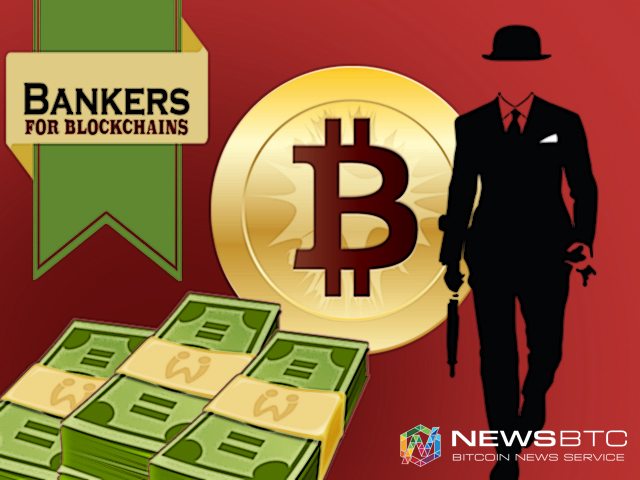The Banks don’t want to acknowledge the existence of bitcoin, but they are all eagerly waiting in a line to implement the Bitcoin technology. Do the banks realize that there would have been no blockchain without the bitcoin? The endless opportunities these banks are seeing, where they can potentially save millions of dollars every year by using a much faster, economical and secure alternative to existing infrastructure is being made possible by the very digital currencies they are trying to ignore.
The growth of Bitcoin as an alternative currency has been a very uncomfortable development for the mainstream banking and financial sector. Even though the use of bitcoin is still limited, mainly due to slow adoption rate, its advantages against the present monetary system is well known among the people. It has been ages since a disruptive technology made inroads to the well-established financial system, which has so far been ruled by banks. They have been acting as the gatekeepers of the financial system, sometimes making decisions for the individuals about how they should save or spend the money.
Enter bitcoin and people now have an option which they never believed could exist. The democratization of the economy, where the individuals have the freedom to decide how and what they want to do with their money without having to rely upon or go through the institutionalized monetary channels. Since bitcoin became popular, it has undermined the authority of banks and financial institutions on the financial system. People no longer have to rely upon the bankers who have been handling their money for generations to make a transaction. They can do it by themselves. If someone wants to send funds to a relative or a friend staying abroad, they no longer have to go to the bank, fill up forms stating reasons for carrying out an outward remittance and wait for few days till the funds are received by the other party, minus the hefty transaction fee. Instead, they can just initiate a bitcoin transaction for the required amount to the bitcoin wallet address belonging to the recipient and viola, the person will receive the funds in less than an hour.
The banking sector has been relying on a fixed structure of monetary policies devised to ensure their profits for too long, and now the realization has drawn upon them that their existing model may not stay profitable anymore. There are only two ways to overcome it, either by embracing the digital currency or by shutting it down. Embracing bitcoin will not make much sense to them as they may not see much profits in it and also there is no place for banks in a decentralized monetary system. Left with the second option, the banks are now trying had to discredit the digital currency while implementing the blockchain technology into their operations to improve their infrastructure. However, the main motive behind that is not to make banking more customer friendly, but to reduce the operational costs in order to make more profits.
Under the traditional monetary system, the banking sector has significant control over a country’s economy, which has led to the development of a symbiotic relationship between banks and the government. banks have no qualms about exploiting this relationship to lobby against the use of bitcoin and other digital currencies, with an intention of influencing regulators to crack down on such businesses and users who are involved in using and trading digital currencies. This poses a significant threat to the digital currency ecosystem, at this stage as it is still in the process of gaining mass adoption. Until people make a complete transition from fiat currency to the digital currency ecosystem, there may be a need to work directly or indirectly with the existing system, and the banking sector is trying to target that by declining their services to companies operating bitcoin exchanges and other digital currency based services.
The actions on the mainstream banking and financial institutions’ part have made it obvious that they are threatened by the development in the bitcoin sector and they are trying to prevent its growth by throwing roadblocks at it.
Disclaimer: The statements, views and opinions expressed in this column are solely those of the author and do not necessarily represent those of NewsBTC Header Image via: NewsBTC
